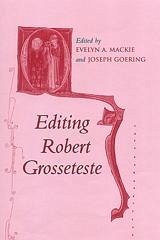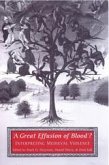Thirteenth-century theologian, philosopher, and church leader, Robert Grosseteste was one of the most learned men and respected scholars of his time. Elected as the Bishop of Lincoln in 1235, a post he held until his death in 1253, Grosseteste was something of a polymath, exploring subjects ranging from the natural sciences (physics, cosmography, etc.) to pastoral care and speculative theology. More than 1000 medieval manuscripts of his works are scattered in libraries throughout Europe, and as a result there are immense challenges faced by editors who wish to provide modern critical editions of his works. This collection of essays, in the series on Editorial Problems, offers historical and contextual discussions of several of Grosseteste's works, including the Super Psalterium, Le Chateau d'amour, and Grosseteste's translation of the pseudo-Dionysian Ecclesiastical Hierarchy, among others. In addressing specific aspects of the editorial process - questions of authenticity, chronology, textual transmission, editorial practice, and contemporary sources and influences - the contributors provide new insight into Grosseteste's work through the use of both traditional and cross-disciplinary approaches.
Hinweis: Dieser Artikel kann nur an eine deutsche Lieferadresse ausgeliefert werden.
Hinweis: Dieser Artikel kann nur an eine deutsche Lieferadresse ausgeliefert werden.








